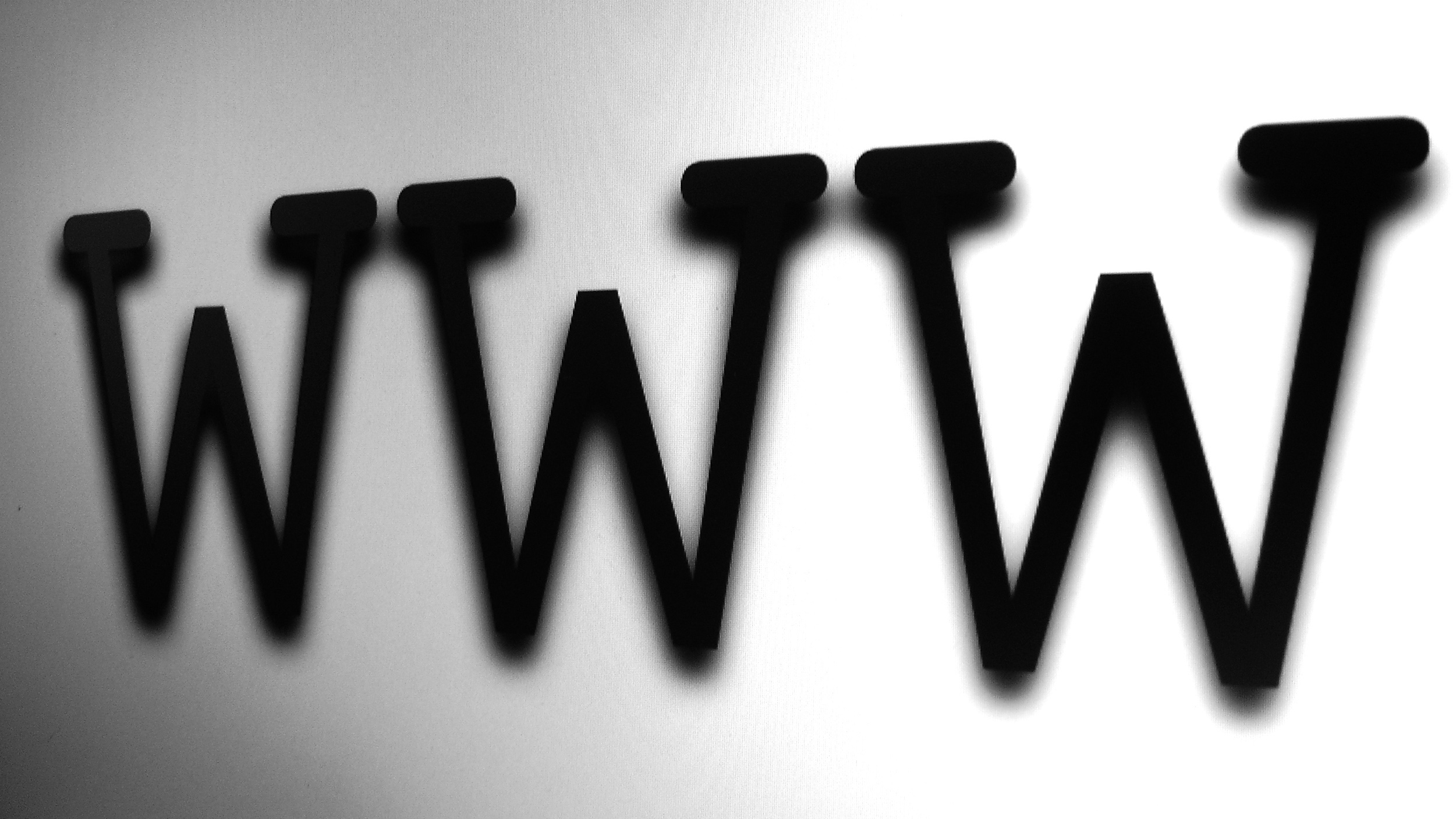
Sign up for breaking news, reviews, opinion, top tech deals, and more.
You are now subscribed
Your newsletter sign-up was successful
While preparing for the future, I'm trying to sensibly and soberly imagine the end-game when media corporations and the government run the internet the way they want to.
I don't mean a nightmare scenario where RFID chips are secreted beneath eyelids at birth, or where cochlear implants whisper advertising into your brain 24 hours a day. I mean an imaginary but realistic portrayal of the kind of experience we'd have if the internet was no longer in the hands of us mavericks.
Let's start with the media industry. The average commercial DVD is a prime example of what might happen if these folks control more of the internet. Firstly, any convenience brought about by advancing technology becomes secondary to advertising revenue potential.
Forced advertising
There's no reason why a DVD can't instantly skip to the main feature, for example, yet few do. Instead, we suffer piracy warnings, reveal-all trailers, adverts for rubbish we don't need and worse, sometimes the pause and skip functions are disabled on our own hardware. Disney's FastPlay is the perfect case.
Despite its name, it's designed to automatically start the advertising unless you're quick enough to hit the 'Main menu' button first, which is exactly what a room full of four-year-olds waiting for The Lion King can't do.
In the future, something similar to this DVD upgrade facility will be 'ported' to the internet, so that when you enter a URL for a site or follow a link, you'll have to wait for the advertising to finish. There will be no chance to skip, stop or open another window. The 'back' button will be disabled and your front-facing camera will be tracking your gaze.
Your privately hosted site will also be scanned for its use of commercial media, and if any is detected, more ads will be plastered over your carefully crafted CSS, just like Rumblefish does for YouTube today with a service it calls 'Friendly Music'.
Sign up for breaking news, reviews, opinion, top tech deals, and more.
Anti-piracy
This leads us to contemplate life on the internet after ACTA, or the inevitable secret version that will sneak into our laws while we're distracted by the Olympics or the Mayan end of the world.
ACTA, the Anti-Counterfeiting Trade Agreement, would give acceding governments the protocol and the 'collective will' to protect their creative economies from the evils of digital piracy at both the hosting and ISP levels.
This will probably be accomplished through an independent consortium of impartial media industry experts.
They'll be able to do this by monitoring your online activity, by blocking websites and by criminalising entire housing estates full of teenage infringers. All of which sounds just as frightening as random settlement letters sent from renegade law firms.
Like Phorm's behavioural targeting for advertising, your day-to-day browsing would be secretly profiled, only this time, they'll be looking for the tell-tale traces of a freeloading pirate rather than potential Marmite lovers.
Fortunately we're all Europeans now, and ACTA itself is under attack by those who'd rather the internet remain neutral. It's hoped that this vision of the future will fade in the face of the European Court of Justice, just as Phorm did before the European Commission.
After a recent High Court ruling, it's probably too late for the Pirate Bay in the UK, which leads to the obvious question of what will happen to VPNs and clever reverse-DNS trickery, which are increasingly common methods of side-stepping geographically restricted content.
It's likely they'll be tarred as technologies only used by those with something to hide, and despite their many legitimate uses as privacy and security tools, they'll be outlawed (the same could be said of torrents, of course).
In the future, they'll probably need to be licenced by companies for legitimate use, leaving us with far fewer privacy options, less control and a much bleaker future for our children's freedom online.
But a failure to understand the way the internet works has never stopped policy makers before.
Rebellion
As Eric S Raymond puts it in his open letter to Chris Dodd (MPAA chairman and CEO): "We built the internet as a tool to make every individual human being on the planet more empowered. What the users do with the internet is up to them - not up to Hollywood, not up to politicians, and not even up to us who built it.
"Whatever else we internet geeks may disagree on among ourselves, we will not allow our gift of fire to be snuffed out by jealous gods."
Eric has hit upon the fundamental problem. No one is saying that piracy is right, or that content providers shouldn't try to limit their losses. But neither did anyone draw up rules for how the internet should or shouldn't be used.
People, companies and governments joined up because they wanted to be part of the global conversation, and they couldn't afford not to.
To turn around and demand changes to the nature of that conversation is wrong, and it's our responsibility to make sure it doesn't happen. Otherwise the internet will suffer the same fate as commercial DVDs and become yet another avenue for commercial snooping.